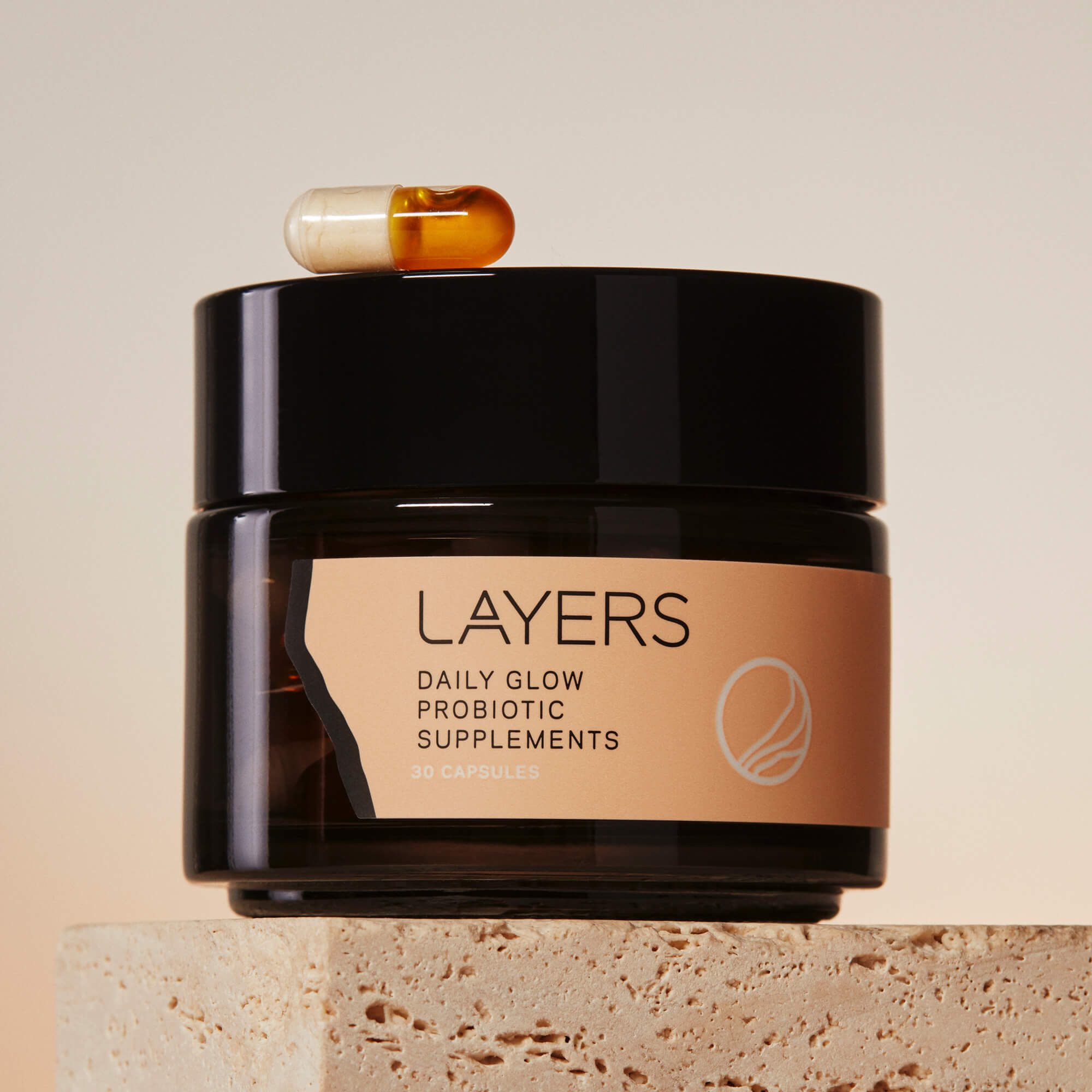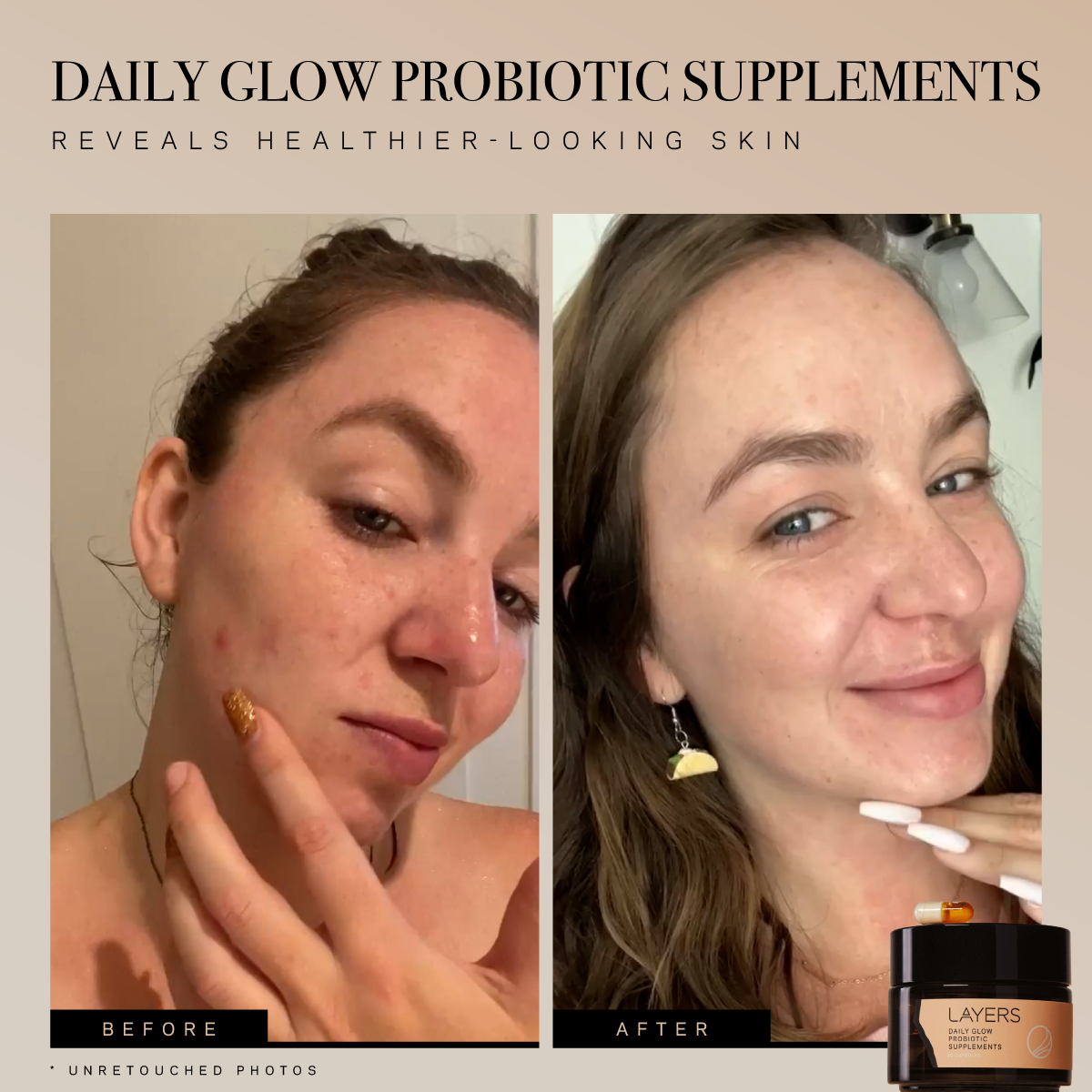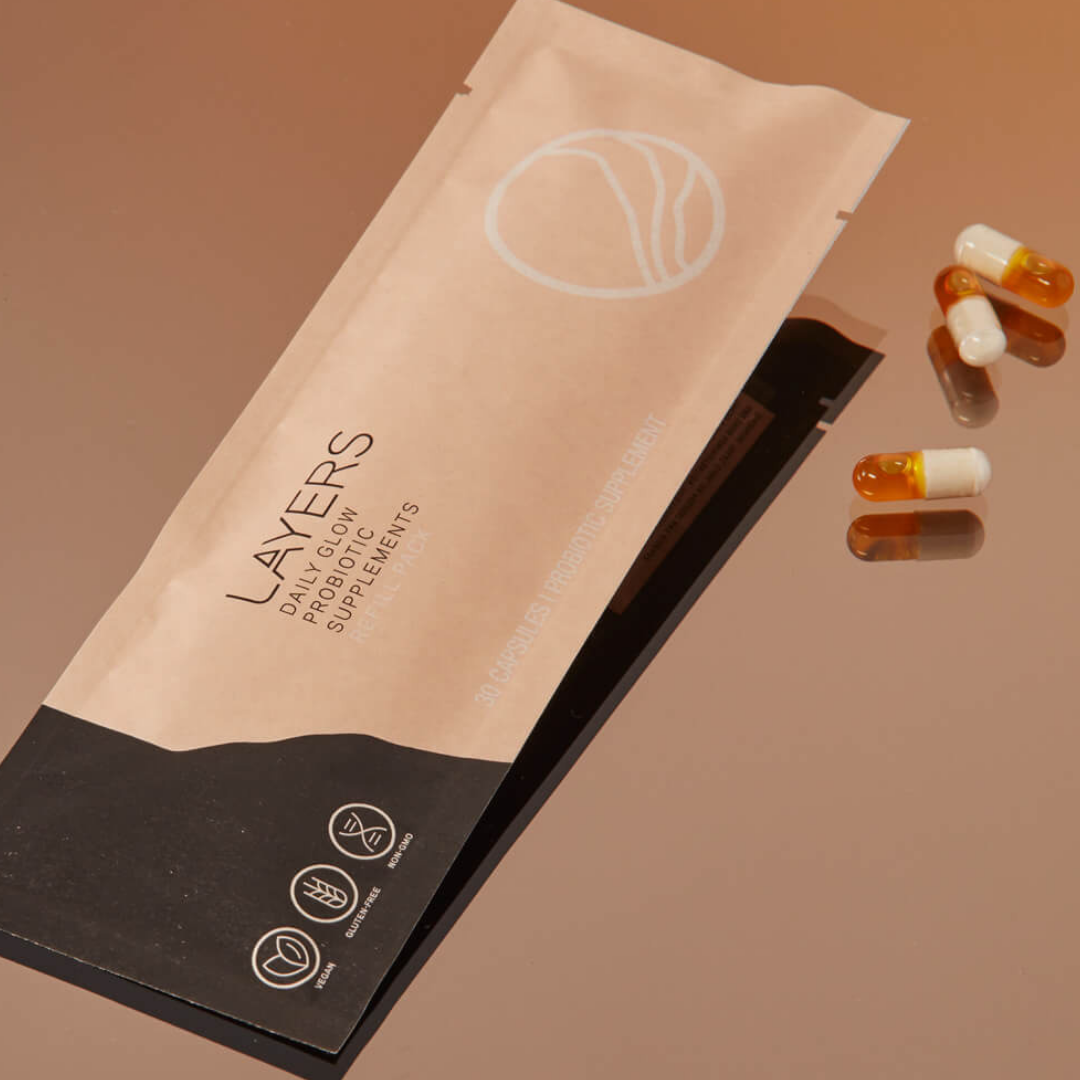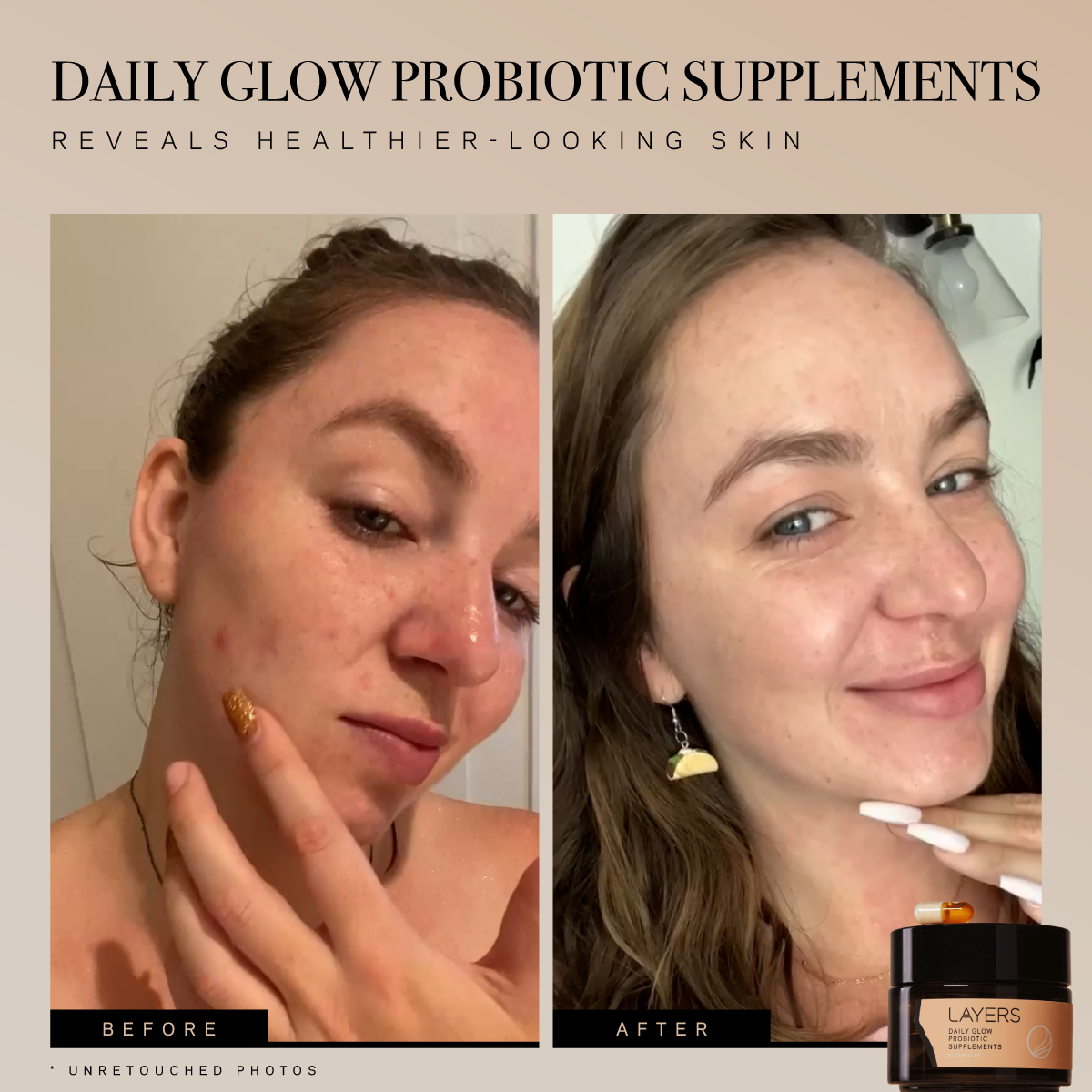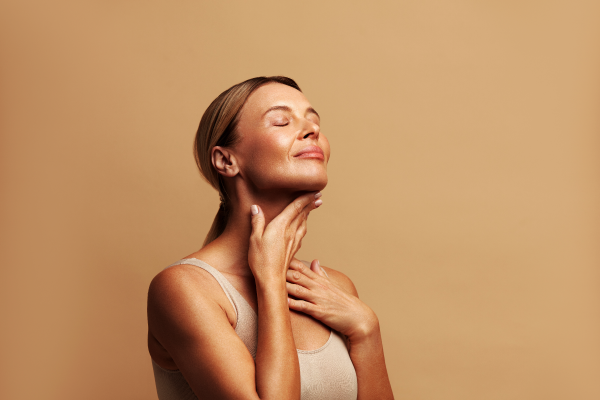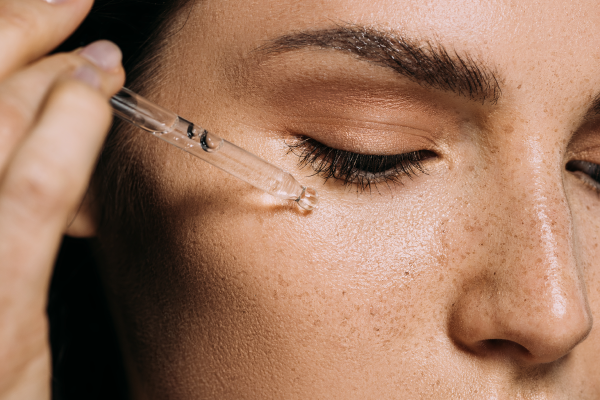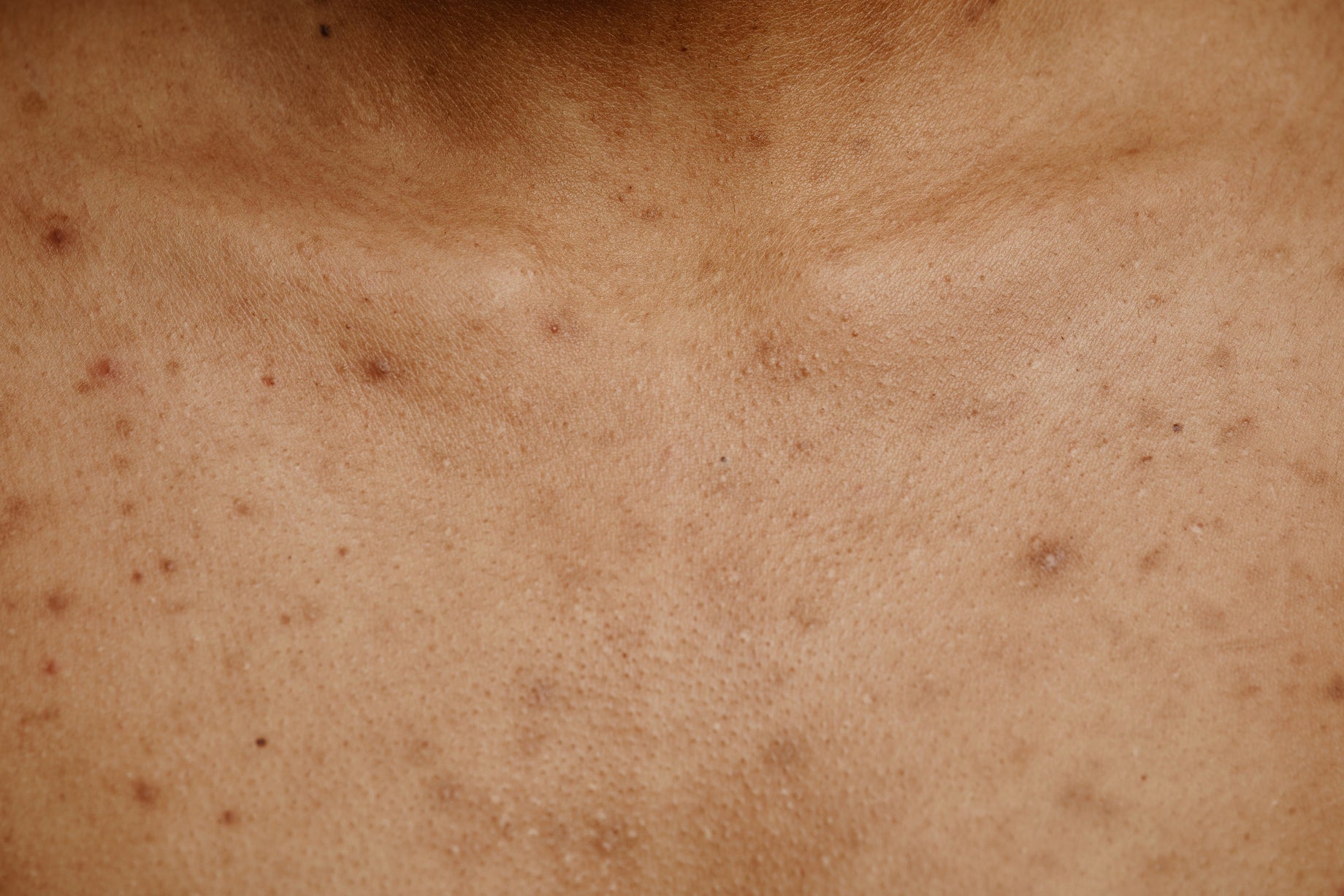Curious about probiotic skincare? Here’s how probiotics can help you get the skin you’ve always wanted.
Nature is the foundation of life, and science is the language we use to understand it. And when it comes to probiotics, the path to understanding their roles within our bodies is still being trekked. We know they’re beneficial and we’re starting to uncover all the ways in which they work their tiny magic.
So this begs the question…what do we know about how they can help us get better, brighter skin?
A SHORT HISTORY OF PROBIOTICS
While probiotics are the new kid on the block in beauty, science has long been pointing to these tiny bacteria as forces of strength for good health. In 1953, German scientist Werner Kollath coined the term probiotics, defining them as “active substances that are essential for a healthy development of life.”
His declaration came on the heels of earlier scientists. Going all the way back to the 1900s, French chemist Louis Pasteur recognized that there were tiny little organisms performing the process of fermentation. Soon after, Nobel laureate Elie Metchnikoff, who specialized in immunology, set off to discover why mountain communities in Bulgaria were living such long and healthy lives. He ultimately traced it back to their diets, rich in fermented dairy products. He summed up the role of probiotic bacteria like this:
“The dependence of the intestinal microbes on the food makes it possible to adopt measures to modify the flora in our bodies and to replace the harmful microbes by useful microbes.”
Basically, we should start feeding our bodies more good bacteria and by doing so, we can have a direct positive effect on our health.
More than 2,000 years ago Hippocrates pointed to healthy digestion as the source of a good, long life, declaring “bad digestion is the root of all evil”. Coming from the father of modern medicine who lived to the ripe old age of 90 (the average life expectancy at the time was 37-41 years), that’s saying something!
WHAT IS THE GUT-SKIN AXIS?
So, why the history lesson? If you’re new to probiotics, it’s helpful to know that they’ve been around, well…forever. They colonize our gut to aid digestion and keep us healthy so our bodies stay in working order. All of that science from the 1900s taught us that when we add more of the good guys to the party, the gut functions even more optimally. Now, you might be wondering what probiotics have to do with skincare.
And that’s our cue to introduce you to the gut-skin axis.
A comprehensive 2018 study recognized the direct relationship between the gut and our skin health. They linked poor gut microbiota, meaning low probiotic diversity, with a myriad of conditions, many related to the skin. It showed that the most common and bothersome skin-related flare-ups including acne, psoriasis, and dermatitis, were direct results of inflammation caused by a lack of beneficial probiotics. It continued:
“Through complex immune mechanisms, the influence of the gut microbiome extends to involve distant organ systems including the skin. With intentional modulation of the microbiome, probiotics, prebiotics, and synbiotics have proven beneficial in the prevention and/or treatment of inflammatory skin diseases including acne vulgaris, AD, and psoriasis.
In this up-and-coming field, future research should improve our understanding of the complex mechanisms underlying the gut-skin axis, investigate the therapeutic potential of long-term modulation of the gut microbiome, and potentially expand therapeutic manipulation to include commensal gut fungi and viruses in order to fully harness the gut microbiome’s influence in the treatment of skin disease.”
Basically, what gets to your gut has a direct effect on your skin. When your gut is grumpy, it reacts in the form of inflammation. This inflammation sets off a chain reaction that can lead to skin conditions like acne, psoriasis, and dermatitis. Good bacteria can help prevent inflammation, decreasing the likelihood and/or severity of these skin conditions.
HOW DOES SKIN RETAIN MOISTURE?
Your skin is the largest organ in your body. It’s made up of 15 layers and in order to function properly, those layers need to be refreshed regularly. That means they need to shed dead cells and regenerate them at a normal pace. This creates a solid and stable boundary between you and the outside world, often referred to as your brick-and-mortar. Essentially, your skin is your shield and the best defense you have against the elements. If you’re keeping it healthy from the gut outward, it’s better at protecting you.
Not only does that mean it’s guarding you against any environmental substances and microbes that you might encounter, but it’s also holding the good stuff in. As much as we love putting on our Immunity Moisturizer, we also want to retain the moisture and hydration our skin naturally produces. According to the 2018 study, the preservation of that barrier is incredibly important to our overall skin health:
“When epidermal turnover functions appropriately, the resulting brick and mortar structure serves as an effective skin barrier with the ability to limit evaporation, preserve skin moisture, and protect from invasion by foreign organisms and substances.”
Gut health has a direct effect on your skin's ability to protect you. If you’re increasing your gut bacteria through a healthy diet that includes fermented foods and introducing a greater variety of probiotics through supplementation, you’re strengthening your shield by encouraging regular turnover and regeneration of dermal cells.
CAN PROBIOTICS HELP DECREASE THE EFFECTS OF AGING?
The number one external contributor to the early lines and wrinkles we accumulate over the years is something called photoaging. This refers to the effects of aging we notice that might pop up sooner than they should (compared to our biological rate of aging) as a direct result of sun exposure. The UV rays emitted by the sun affect the deepest layers of our skin called the dermis. Brown spots, wrinkles, broken capillaries, uneven texture, and even cancer are all symptoms of dermal UV damage.
A 2015 Korean study demonstrated that Lactobacillus Plantarum, a key ingredient in our Daily Glow Probiotic Supplements, improved skin hydration and identified anti-photoaging effects. Participants noticed an increase of water content in the face and hands, a decrease in transepidermal water loss, a greater gloss-like effect in their complexions, and a significant reduction in wrinkle depth after 12 weeks of continued use. Additionally, skin elasticity was improved by an average of 13.17%.
WHAT DOES SCIENCE SAY ABOUT PROBIOTIC SKINCARE?
Let’s summarize what we’ve learned:
-
Science says: Adding good probiotics to our gut microflora reduces inflammation and helps improve skin conditions like acne, psoriasis, and dermatitis. Source
-
Science says: Continued use of oral probiotic supplements containing Lactobacillus Plantarum help your skin retain moisture, increase elasticity, and decrease the appearance and depth of wrinkles. Source
-
Science says: Good gut health helps regulate skin cell turnover so we hold onto our natural levels of moisture and skin hydration. Source
We love helping to spread the word about probiotic skincare! The benefits of probiotics are only growing as more and more research goes into the study of the gut-skin axis. If you’ve been waiting to enter the future of skincare, then now is the time to dive in. Our clinically-proven line of probiotic skincare is about to show you what your skin is capable of.
Are you ready?

